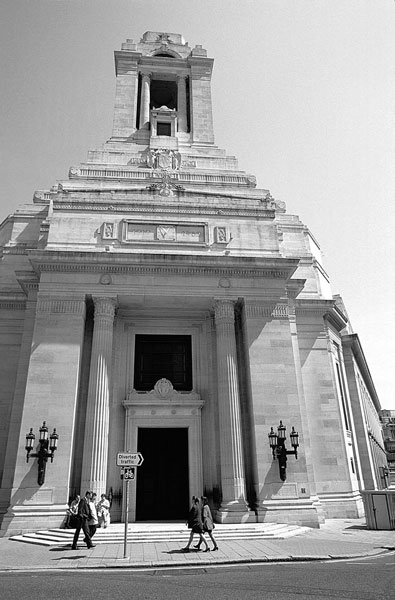
Select Committee Slams Secret Society
Freemasons drag heels on public declaration.
Squall Download 1, Oct/Nov 1999, pp. 10-11.
The Home Affairs Select Committee has strongly criticised the United Grand Lodge of Freemasonry for being uncooperative with a parliamentary examination on the influence of masonry on public life.
In its 2nd report, published in May 1999, the Committee states: “We particularly regret that it was only possible for this Committee to obtain the co-operation of the Grand Lodge by compulsion. We did not do so lightly, but only after being faced with months of prevarication and obfuscation.”
The Select Committee had asked the United Grand Lodge - representing 350,000 exclusively male UK freemasons - to provide a list of its members involved in infamous cases of corruption including that involving the West Midlands Serious Crime Squad (disbanded 1989). According to the Committee’s 2nd report published in May: “The West Midlands Crime Squad was arguably the most complained about unit in what was the most complained about police force in the country.” However, when Committee chairman, Chris Mullins MP provided the Grand Lodge with a list of those involved, the Grand Lodge dragged its heals on confirming their masonic status. The Committee report notes: “We regret that it has taken the Grand Lodge five attempts to arrive at a definitive - if it is definitive - list of masons in the Serious Crime Squad.” Doubts over the accuracy of the Grand Lodge's reluctantly given information were further excacerbated when the Committee discovered that one of the names not confirmed by the United Lodge was subsequently discovered by the Committee’s chairman to be a mason.
The Select Committee’s first report, published in 1997, called for a publicly available register of all masons working in the police and judicial system. Home Secretary, Jack Straw, accepted the Committee’s recommendation but only confirmed a voluntary declaration scheme which has since proven to be a farce. Ernie Hanrahan, head of the Police Federation representing rank and file police officers, has already publicly urged his members not to co-operate.
From the scant compliance with voluntary questionnaires, the Select Committee estimates that between 5-10% of professional judiciary (judges etc), 5-20% of magistrates, and as much as 48% of the Crown Prosecution Service are masons. There are no breakdowns for the police as yet.
The Select Committee report concludes: “Progress has been slow, particularly with the police… We call on the government to speed up the process of establishing the registers of masonic status among the police and other parts of the criminal justice system, and to announce a firm timetable for completion of the exercise… Additionally the names of all those who have failed to indicate whether or not they are masons should be published; such persons should not be allowed to exempt themselves entirely from the process simply by declining to co-operate.”
Responding to indications from Jack Straw that the final register of names might be limited in its public accessibility, the Select Committee also states: “In the absence of any compelling reason to the contrary, we support full public access.... Finally we look forward to the extension of such disclosure into other areas of public life such as local authorities and Parliament.”
Related Articles
Boyz In The 'Hood - Peter Panatone reports on recent moves to get Masonic police to declare their allegiances - Squall 16, Summer 1998
Handshakes In High Places - freemasons in the criminal justice system - Squall 15, Summer 1997
